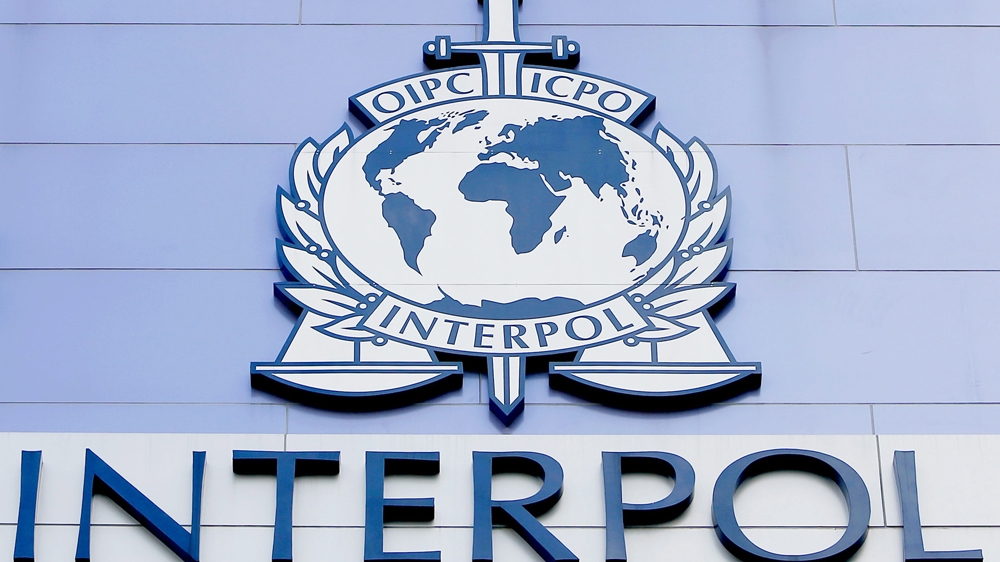
The main objective of the International Criminal Police Organization (INTERPOL - INTERPOL) is to record international criminal information, to combine the efforts of national law enforcement agencies of the member states in the fight against crime, and to coordinate the international search. INTERPOL has its headquarters in Lyon, France.
The structure of the law-enforcement agencies of each state - member of the INTERPOL includes a National Central Bureau (NCB) – an authority responsible for cooperation with the NCBs of other member states and the General Secretariat of the INTERPOL.
Based on requests and documents of the investigation authorities, the NCB submits to the INTERPOL requests for recording in the INTERPOL Information System the data about the international search of a specific person. After the INTERPOL General Secretariat agrees to the data processing, the data about the person is recorded and processed in the INTERPOL database with the assignment and publication of a specific notice of the international search. The INTERPOL General Secretariat may also record and process the information about the search of a person in its database on its own initiative.
It should be noted that although the INTERPOL bodies have the authority to verify the information provided by the NCB before recording and processing the information in its database, it is presumed that the information provided by the NCB is accurate, sufficient and relevant to be recorded and processed in the INTERPOL database. Using this presumption, some NCBs misuse the INTERPOL system to prosecute individuals not for the purposes foreseen and permitted by the Organization, for example, with the purpose to exert pressure on individuals through criminal prosecution and international search for political or religious reasons.
INTERPOL Notices
INTERPOL uses nine types of notices, of which seven types of notices have particular colours, i.e.:
- red notice: to seek location and arrest of a person with a view to his/her extradition;
- blue notice: to locate or obtain information regarding a person of interest in a criminal investigation (accused, convict, victim, witness);
- green notice: to warn about person’s criminal activities if that person is considered to be a possible threat to public safety;
- yellow notice: to locate a missing person or to identify a person unable to identify him/herself;
- purple notice: to warn about modi operandi, objects, devices or concealment methods used by offenders or to request information on offences to resolve them or assist in their investigation;
- black notice: to seek information on unidentified bodies;
- orange notice: to warn of an event, a person, an object, a process or a modus operandi representing an imminent threat to public safety and danger to persons or property;
- Interpol-United Nations Security Council special notice: to inform INTERPOL's members that an individual or an entity is subject to UN sanctions;
- Stolen work of art notices.
NEWS. In January 2025 INTERPOL published its first-ever Silver Notice upon the request of Italy. Silver notice is devoted to the tracing and recovery of assets. It is being launched as part of a pilot phase involving 52 countries and territories, which will run at least until November 2025. Through Silver Notices and Diffusions, member countries can request information on assets linked to a person’s criminal activities such as fraud, corruption, drug trafficking, environmental crime and other serious offenses. Its aim is to facilitate locating, identifying, and obtaining information about laundered assets including properties, vehicles, financial accounts and businesses. Countries may subsequently use such information as a basis for bilateral engagement, including bilateral requests for seizure, confiscation or recovery of assets, subject to national laws.
Other than notices, the member states often use a diffusion for the same purposes as notices. The main difference between the diffusion and the notice is that a diffusion if a request for international cooperation, which is sent to the states at the choice of the NCB of the requesting state and so only the states indicated by the requesting state can see the request for the person’s search in their databases. In practice, the INTERPOL puts less stringent requirements for recording diffusions in its database than those for issuing a notice.
Consequences of issuing a notice or a diffusion
If a notice or a diffusion has been issued and processed in the INTERPOL database with respect to a person with a purpose of his/her arrest and extradition, then that person risks being arrested at the border, when receiving / renewing documents in the official bodies, or in other circumstances when information about the location of the wanted person is identified. From this moment, the extradition procedure of the person to the requesting state is launched.
Challenging the international search before the INTERPOL
The structure of the INTERPOL bodies, in addition to the General Secretariat, the General Assembly and the Executive Committee, includes the Commission for the Control of INTERPOL’s Files (the Commission). This is a special body in the structure of the INTERPOL guided in its work by the new Statute, which entered into force on 11 March 2017. The Commission is vested with competency to verify that the data regarding the wanted person has been recorded and is processed in the INTERPOL database in accordance with the requirements of the Organization.
The Commission for the Control of INTERPOL’s Files, namely its Requests Chamber, is responsible for examination of individual requests for access to data, for deletion and correction of the data processed in the INTERPOL Information System regarding the persons subject to international search and INTERPOL’s notices, including a red notice or a diffusion.
The Commission holds its sessions, in general, four times per year, at which it takes decisions on deletion or correction of the data in the INTERPOL database. The Commission may also take decisions between the sessions, this mainly concerns decisions on providing access to data.
Deadlines for taking the decision by the Commission:
- requests for access to data, i.e. receiving information about whether a person is in the INTERPOL database and on what basis, - officially within 4 months (in practice, the terms are shorter) starting from the date these requests have been declared admissible
- requests for deletion or correction of the data – within 9 months (in fact around one year) starting from the date these requests have been declared admissible.
The request should be filed to the Commission in one of the INTERPOL’s working languages (English, French, Spanish or Arabic) accompanied with the relevant documents also translated into one of the INTERPOL’s official languages. The form and content of the request are subject to special admissibility requirements, failure to comply with which will lead to the dismissal of the request by the Commission on formal grounds. The Commission shall decide on the admissibility of the request within one month from the date of its receipt.
If the Commission rejects the request for deletion or correction of the data regarding the applicant, there is a mechanism for revision of the Commission's decision subject to availability of justifiable grounds and compliance with special requirements for such a revision.
For the period of examination of the request for deletion or correction of the data by the Commission, there is a possibility to request imposition of provisional measures aiming to suspend the validity of / block access to a notice or a diffusion until a final decision on the request is taken by the Commission. Subject to granting such a request for provisional measures by the Commission, the data about the applicant is not visible in the INTERPOL database for the period of the applicability of the interim measures. It should be noted though that the provisional measures are granted in exceptional cases (for example, the applicant’s extradition is imminent).
Preventive request
Even if there is no data about the applicant in the INTERPOL’s database, but s/he has concerns that the official authorities are conducting or may start criminal prosecution against him/her and use the international search through the INTERPOL Information System, it is possible and advisable in such cases to file a preventive request with the Commission. The preventive request is filed with the purpose to ensure that upon receipt of a request from the member state's NCB for the data about the applicant to be recorded and processed in the INTERPOL’s database, the Commission does not presume the lawfulness, reliability and correctness of the submitted information and verifies it on compliance with the Organization’s rules and procedures taking into account the arguments of the preventive request.
It should be noted that the Commission accepts such preventive requests and takes into account the applicant’s arguments if and when it receives the relevant request from the NCB. It may request the applicant to comment on the NCB’s request before deciding whether to grant or refuse the NCB’s request on recording and processing the data about the applicant in the INTERPOL’s Information System.
Legal Competence of Lawyer BOYCHENKO Yegor
It is important to seek the assistance of a qualified lawyer with relevant experience before contacting the Commission for the Control of INTERPOL’s Files and submitting the relevant request.
Lawyer BOYCHENKO Yegor has successful experience in removing the INTERPOL’s notices and diffusions and provides the following services in dealing with the police international organization INTERPOL and the Commission for the Control of INTERPOL’s Files:
- Preparation and submission of requests for access to the data about the applicant in the INTERPOL’s database;
- Preparation and submission of requests for deletion and correction of the data in the INTERPOL’s database, including removal of red, blue, yellow notices and diffusions;
- Preparation and submission of requests for temporary suspension of the international search notice and diffusion;
- Preparation and submission of requests for revision of the Commission’s refusal to delete or correct the data;
- Preparation and submission of preventive requests.
- In the event of extradition proceedings from the States of the European Union - preparation of the expert reports about the violations of the national law and human rights and freedoms in the criminal proceedings in the State of Eastern Europe requesting extradition.Preparation and submission of preventive requests.
Law company of BOYCHENKO Yegor has successful cases dealing with removal of the applicants from the INTERPOL database by filing requests for deletion of the data and requests for revision of the Commission’s decisions as well as prevention of the applicant’s data to be included into the INTERPOL’s database by filing the preventive requests against countries of Europe (Norway, Russia, Ukraine, Republic of Moldova, Republic of Belarus), Asia (Islamic Republic of Iran, Saudi Arabia, Turkey) and Latin America (Peru).
